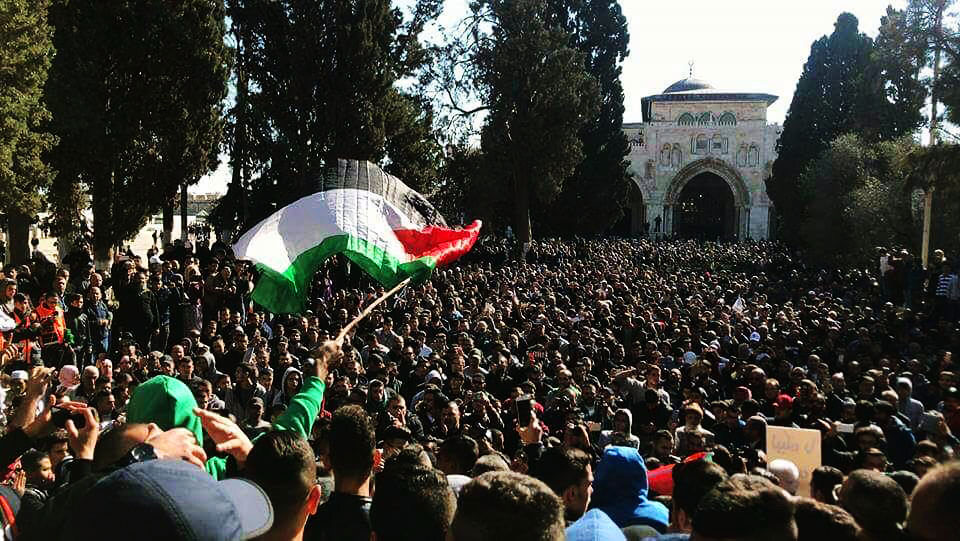On the occasion of the International Day of Solidarity with the Palestinian People (November 29), the Ka’abneh Bedouin community in the Jordan Valley hosted a Day in Solidarity and to Support Steadfastness. Thirty activists gathered to help the beleaguered community to finish the building of their local school, as a form of resistance to ongoing Israeli efforts to ethnically cleanse the area from Palestinian presence.

The day of voluntary work was organized by the Stop the Wall Campaign, the Popular Struggle Coordination Committee and the Tanweer Center in cooperation with The Popular Council to Protect the Jordan Valley and is part of ongoing efforts to support the community against demolition and expulsion orders by the occupation forces. The Ka’abneh are only one of many Palestinian communities that have been transformed into besieged, impoverished and marginalised communities that are living in areas today considered the periphery of the West Bank. Israel has developed a comprehensive plan to ethnically cleanse these areas.

The Ka’abneh tribe are 2000 people living west of Jericho along the road to Ramallah. It is one of 46 Bedouin communities under threat of renewed displacement. The tribe traces their origins to areas southeast of Hebron, from which they have been expelled as part of the Nakba, Israel’s large scale ethnic cleansing between 1947-51. Today, the Ka’abneh tribe faces ongoing harassment from the Israeli military: the community is being systematically deprived of access to water and electricity, even though main electric wires that provide energy to the illegal settlements pass through their community and two big water reservoirs that guarantee water for the settlements are built on their land, only ten meters from the school.

The school of the community has received already 15 demolition orders since 1997 as yet another attempt by the occupation forces to make life for the community unsustainable. Nevertheless, the Jordan Valley Solidarity Campaign and the Popular Council for the Protection of the Jordan Valley have provided the school with a solar system and have added another class room last year. At the beginning of November, they have started preparing for the construction of another class room, expanding the area of the school.

Two weeks ago, some 60 activists built the room and arranged the area around the school. Today 30 activists gathered to finish the works, painting the floor of the classroom, rehabilitating the water system and planting trees around the school.

Mahmoud Al Jarmi, the principle of the school, explained:
“There are 80 pupils in the school, which makes it really overcrowded. This work [on the new classroom] is very important for us to allow more pupils to join the school instead of forcing them to Jericho or Al Oja, which is some five km away from the community. The participation of the pupils in planting the trees together with the volunteers while singing Palestinian songs like they did today, further strengthens their commitment to their cause and to voluntary work to serve their community.”
Access to education for Palestinian children and youth is particularly difficult as a myriad of Israeli military checkpoints make movement difficult, dangerous and unpredictable. While barring Palestinian youth access to education has become a central element of Israeli apartheid, pursuing in the effort to complete their education has become a form of resistance for the Palestinian people.




